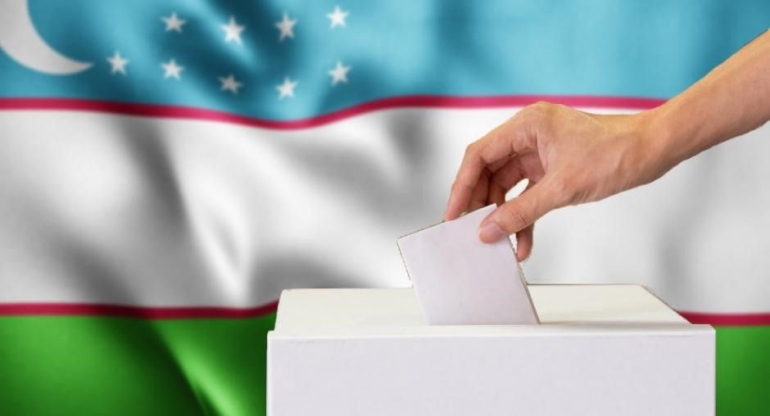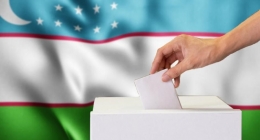The Electoral Code provides for a clear procedure for subjects of electoral law to appeal against decisions made at all stages of preparation and conduct of elections. The Code regulates the procedure for consideration by election commissions of applications from individuals and legal entities on the organization, conduct of elections and summing up its results.
All this contributes to the realization of the fundamental right of citizens to justice (the dispute must be considered and decided by the court). The constituent authority should only solve the problems of organizing elections, creating conditions for citizens to freely express their will, and the assessment of the actions (inaction) of election commissions should be carried out by the courts.
The second is the introduction of a notification procedure for mass meetings, rallies and processions organized by political parties during elections. So, in 2019, before the parliamentary elections, political parties held more than 800 mass rallies throughout the country. At the same time, there were no obstacles and there were no appeals from the parties about any violations of their rights to hold mass events.
However, there was a gap in the legislation in this area. Therefore, in the Electoral Code, the norm is enshrined that parties will organize mass events in advance - at least three days in advance - notifying the khokimiyats of the place and time of their holding. That is, there will be not a "permissive", but a "notification" procedure.
Third, strengthening the capacity of district election commissions to organize and conduct presidential elections. So, today, in accordance with the law, at least seventy days before the elections, the Central Election Commission forms a district election commission for elections of the President of the Republic of Uzbekistan, deputies of the Legislative Chamber, consisting of a chairman, deputy chairman, secretary and 6-8 other members of the commission. However, here it is necessary to take into account the specifics - for parliamentary elections within one electoral district, 70-120 precinct election commissions are formed, and during the presidential elections - about 1000 precinct election commissions. Consequently, during the presidential elections, the task of coordinating activities and providing effective assistance to precinct election commissions becomes much more difficult. In this regard, the Electoral Code has increased the number of members of precinct election commissions to 11-18 people.
The "third step" also envisages a number of other novelties that eliminate the technical and organizational issues identified during the previous elections. In general, they serve to democratize electoral legislation and practice, taking into account the generally recognized international principles of holding fair and truly democratic elections.
RAISING THE ELECTORAL CULTURE OF THE POPULATION IS A GUARANTEE FOR TRANSPARENCY AND FAIRNESS OF ELECTIONS
Democratic transformations in Uzbekistan, as well as an ever-increasing level of political and legal consciousness of citizens, civil institutions are the basis for further improvement of the country's electoral system.
In May, 2021, the Parliament of Uzbekistan has ratified the Convention on the Rights of Persons with Disabilities. Under article 29 of the Convention, States parties guarantee persons with disabilities political rights and the opportunity to enjoy them on an equal basis with others, and undertake, inter alia, to ensure that persons with disabilities can effectively and fully participate, directly or through freely chosen representatives, in political and public life on an equal basis with others. including had the right and the opportunity to vote and be elected.
The Electoral Code embodies all the mechanisms for the exercise by persons with disabilities of their rights to participate in the public and political life of the country by voting. Thus, the premises for voting should be provided with ramps for persons with disabilities. Technological equipment in polling stations - tables, booths and ballot boxes - should be installed taking into account the needs of wheelchair voters.
During the 2019 elections to the Legislative Chamber of the Oliy Majlis, 4,158 persons with disabilities were involved in election commissions of various levels. In May 2021, a Memorandum of Cooperation was signed between the Central Election Commission and the Society of Disabled People, the Society of the Blind, the Society of the Deaf and the Association of Disabled People of Uzbekistan. To create the most convenient and comfortable conditions for voters with disabilities, election commissions will hold a number of organizational events and prepare the necessary information materials. Information about the registered candidates for the office of President of the country will be posted on the information boards of the polling stations. For example, a visually impaired voter, having placed a blank ballot paper on a stencil using Braille, will be able to feel the name of a registered candidate by touch and place any sign in the square of the corresponding slot. For deaf and hard of hearing voters, if there are applications, sign language interpreters may be invited to polling stations on election day. Pre-election TV programs will be broadcast with sign language translation and subtitles, and materials for the blind will be published in special magazines using Braille.







